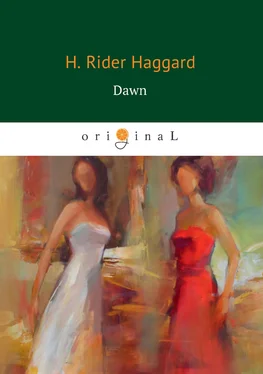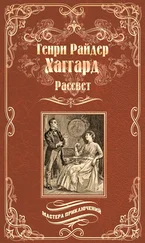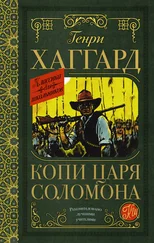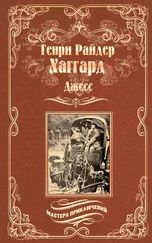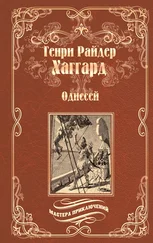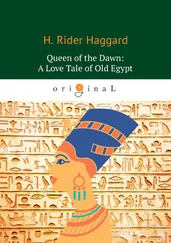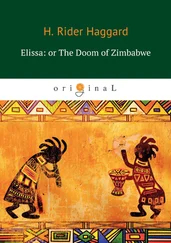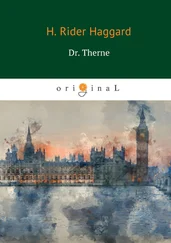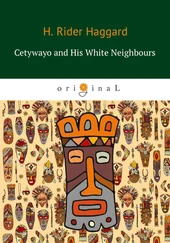Both the lads sprang forward, but before they reached him he had recovered himself.
"It is nothing,” he said, in his ordinary gentle voice, "a trifling indisposition. I wish you both good morning, and beg you to bear my words in mind.”
When he was fairly gone, George came up to his cousin and laid his hand upon his arm.
"Why do you insist upon quarrelling with me, Philip? it always ends like this, you always get the worst of it.”
But Philip’s only reply was to shake him roughly off, and to vanish through the door towards the lake. George regarded his departing form with a peculiar smile, which was rendered even more peculiar by the distortion of his swollen features.
It is difficult to imagine any study that would prove more fascinating in itself or more instructive in its issues, than the examination of the leading characteristics of individual families as displayed through a series of generations. But it is a subject that from its very nature is more or less unapproachable, since it is but little that we know even of our immediate ancestors. Occasionally in glancing at the cracking squares of canvas, many of which cannot even boast a name, but which alone remain to speak of the real and active life, the joys and griefs, the sins and virtues that centred in the originals of those hard daubs and of ourselves, we may light upon a face that about six generations since was the counterpart of the little boy upon our shoulder, or the daughter standing at our side. In the same way, too, partly through tradition and partly by other means, we are sometimes able to trace in ourselves and in our children the strong development of characteristics that distinguished the race centuries ago.
If local tradition and such records of their individual lives as remained are worthy of any faith, it is beyond a doubt that the Caresfoots of Bratham Abbey had handed down their own hard and peculiar cast of character from father to son unaffected in the main by the continual introduction of alien blood on the side of the mother.
The history of the Caresfoot family had nothing remarkable about it. They had been yeomen at Bratham from time immemorial, perhaps ever since the village had become a geographical fact; but it was on the dissolution of the monasteries that they first became of any importance in the county. Bratham Abbey, which had shared the common fate, was granted by Henry VIII. to a certain courtier, Sir Charles Varry by name. For two years the owner never came near his new possession, but one day he appeared in the village, and riding to the house of Farmer Caresfoot, which was its most respectable tenement, he begged him to show him the Abbey house and the lands attached. It was a dark November afternoon, and by the time the farmer and his wearied guest had crossed the soaked lands and reached the great grey house, the damps and shadows of the night had begun to curtain it and to render its appearance, forsaken as it was, inexpressibly dreary and lonesome.
"Damp here, my friend, is it not?” said Sir Charles with a shudder, looking towards the lake, into which the rain was splashing.
"You are right, it be.”
"And lonely too, now that the old monks have gone.”
"Ay, but they do say that the house be mostly full of the spirits of the dead,” and the yeoman sank his voice to an awed whisper.
Sir Charles crossed himself and muttered, "I can well believe it,” and then, addressing his companion—
"You do not know of any man who would buy an abbey with all its rights and franchises, do you, friend?”
"Not rightly, sir; the land be so poor it hath no heart in it; it doth scarce repay the tillage, and what the house is you may see. The curse of the monks is on it. But still, sir, if you have a mind to be rid of the place, I have a little laid by and a natural love for the land, having been bred on it, and taken the colour of my mind and my stubby growth therefrom, and I will give you—” and this astutest of all the Caresfoots whispered a very small sum into Sir Charles’ ear.
"Your price is very small, good friend, it doth almost vanish into nothing; and methinks the land that reared you cannot be so unkind as you would have me think. The monks did not love bad land, but yet, if thou hast it in the gold, I will take it; it will pay off a debt or two, and I care not for the burden of the land.”
And so Farmer Caresfoot became the lawful owner of Bratham Abbey with its two advowsons, its royal franchises of treasure-trove and deodand, and more than a thousand acres of the best land in Marlshire.
The same astuteness that had enabled this wise progenitor to acquire the estate enabled his descendants to stick tightly to it, and though, like other families, they had at times met with reverses, they never lost their grip of the Abbey property. During the course of the first half of the nineteenth century the land increased largely in value, and its acreage was considerably added to by the father of the present owner, a man of frugal mind, but with the family mania for the collection of all sorts of plate strongly developed. But it was Philip’s father, "Devil Caresfoot,” who had, during his fifty years’ tenure of the property, raised the family to its present opulent condition, firstly, by a strict attention to business and the large accumulations resulting from his practice of always living upon half his income, and secondly, by his marriage late in middle life with Miss Bland, the heiress of the neighbouring Isleworth estates, that stretched over some two thousand acres of land.
This lady, who was Philip’s mother, did not live long to enjoy her wealth and station. Her husband never spoke a rough word to her, and yet it is no exaggeration to say that she died of fear of him. The marriage had been one of convenience, not of affection; indeed poor Anna Bland had secretly admired the curate at Isleworth, and hated Mr. Caresfoot and his glittering eye. But she married him for all that, to feel that till she died that glance was always playing round her like a rapier in the hands of a skilled fencer. And very soon she did die, Mr. Caresfoot receiving her last words and wishes with the same exquisite and unmoved politeness that he had extended to every remark she had made to him in the course of their married life. Having satisfactorily eyed Mrs. Caresfoot off into a better world, her husband gave up all idea of further matrimonial ventures, and set himself to heap up riches. But a little before his wife’s death, and just after his son’s birth, an event had occurred in the family that had disturbed him not a little.
His father had left two sons, himself and a brother, many years his junior. Now this brother was very dear to Mr. Caresfoot; his affection for him was the one weak point in his armour; nor was it rendered any the less sincere, but rather the more touching, by the fact that its object was little better than half-witted. It is therefore easy to imagine his distress and anger when he heard that a woman who had till shortly before been kitchen-maid at the Abbey House, and was now living in the village, had been confined of a son which she fixed upon his brother, whose wife she declared herself to be. Investigation only brought out the truth of the story; his weak-minded brother had been entrapped into a glaring mesalliance .
But Mr. Caresfoot proved himself equal to the occasion. So soon as his "sister-in-law,” as it pleased him to call her sardonically, had sufficiently recovered, he called upon her. What took place at the visit never transpired, but next day Mrs. E. Caresfoot left her native place never to return, the child remaining with the father, or rather with the uncle. That boy was George. At the time when this story opens both his parents were dead: his father from illness resulting from entire failure of brain power, the mother from drink.
Читать дальше
